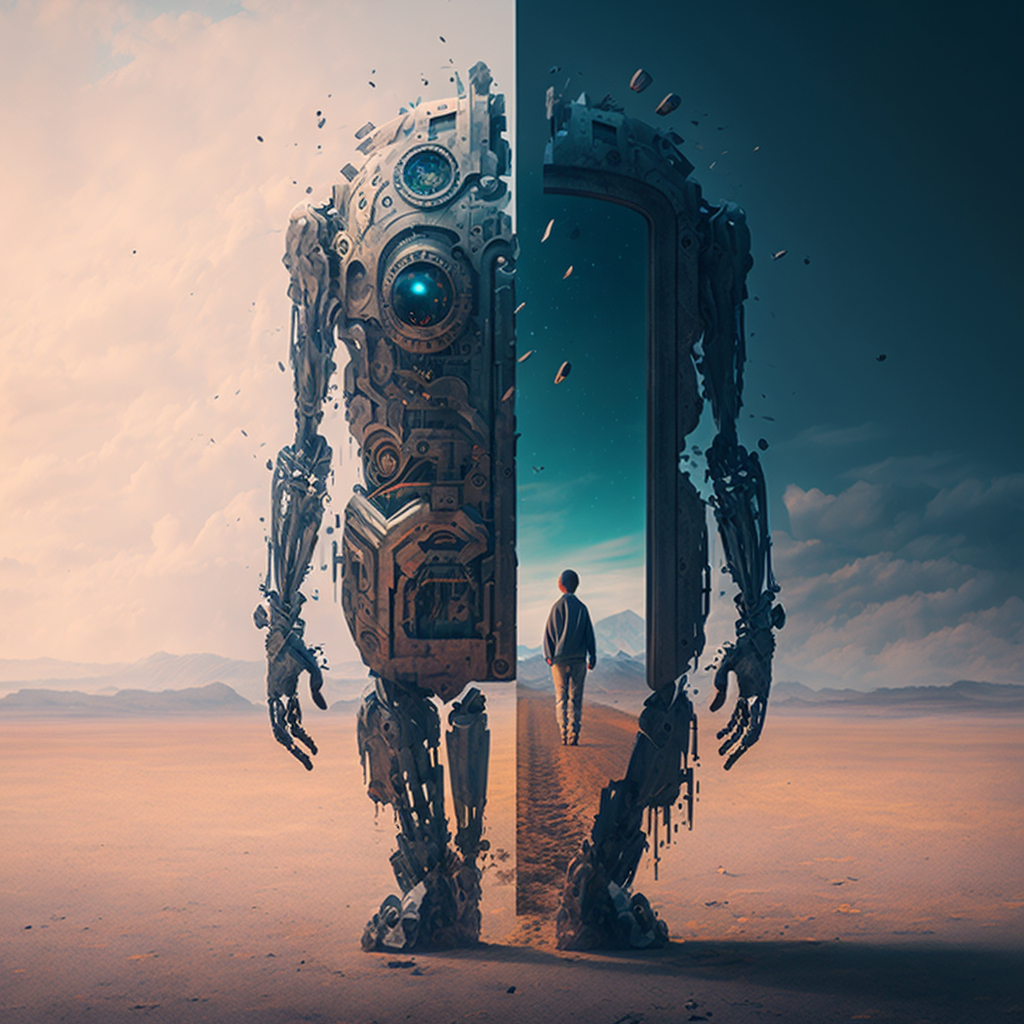
Future of AI: An Unfinished Story
Share
Title: ChatGPT-4 and the Future of AI: An Unfinished Story
Introduction
The evolution of artificial intelligence (AI) continues to astound us as it reaches new heights in the realms of natural language processing (NLP), computer vision, and machine learning. One of the most captivating advancements in AI is the development of OpenAI's ChatGPT-4, a powerful language model that has the potential to transform the way we communicate and interact with machines. While we can only speculate on the future of AI, it's clear that with ChatGPT-4 and similar models, we are entering a brave new world of possibilities.
- A Brief History of ChatGPT-4
ChatGPT-4 is the successor of the renowned GPT-3, which was a groundbreaking AI model released by OpenAI in 2020. The GPT series has come a long way since the first model, GPT, was introduced in 2018. Each subsequent iteration has been characterized by significant improvements in the model's capabilities, enabling more human-like interaction and understanding.
These advancements have been made possible by the continuous growth in the number of parameters and the fine-tuning of the algorithms. The result is a model that can not only generate coherent text but also carry out tasks such as translation, summarization, and even creative writing.
- Exploring the Potential of ChatGPT-4
The capabilities of ChatGPT-4 seem limitless, as it has the potential to revolutionize multiple industries. Some areas where we can already see its impact include:
- Customer service: Chatbots powered by ChatGPT-4 can provide seamless and efficient customer support, understanding and addressing customers' concerns more effectively.
- Education: AI-powered tutors using ChatGPT-4 can deliver personalized learning experiences and help students better understand complex subjects.
- Content creation: ChatGPT-4 can assist in drafting articles, writing scripts, and even composing poetry, opening doors for creative collaborations between humans and machines.
- Healthcare: ChatGPT-4 has the potential to become an invaluable resource for medical professionals by assisting in diagnosis, providing treatment options, and analyzing vast amounts of medical literature.
- Ethical Considerations and Challenges
As with any powerful technology, ChatGPT-4 comes with its fair share of ethical concerns and challenges. Ensuring that AI models like ChatGPT-4 are used responsibly and ethically is crucial.
Some of the key concerns include:
- Bias: AI models can inherit biases from the data they are trained on, leading to unfair or discriminatory outputs. Addressing these biases is critical in ensuring the responsible use of AI.
- Privacy: As AI models become increasingly sophisticated, there's a growing concern about privacy and the protection of sensitive data.
- Misuse: There's a risk that AI models can be exploited for malicious purposes, such as spreading misinformation or generating harmful content.
- The Unpredictable Future of AI
The rapid advancements in AI, exemplified by ChatGPT-4, are as exciting as they are uncertain. With each new iteration, we are getting closer to building AI models that can truly comprehend and engage with the world like humans do. However, the path forward is not without its challenges and potential pitfalls.
As we continue to develop and integrate AI into our daily lives, we must be mindful of its potential consequences, both intended and unintended. In a world where AI has the power to change the very fabric of society, it's more important than ever to ensure that these technologies are developed and used responsibly.
While this article doesn't aim to reach a definitive conclusion, it's evident that the story of AI and ChatGPT-4 is far from over. It's an ongoing narrative that will shape our future in ways we
can't yet fully comprehend. As we stand at the threshold of a new era of AI-driven innovation, we must keep an open mind and be prepared to navigate the complexities that come with such a transformative technology.
- The Role of Collaboration and Regulation
The future of AI, especially with powerful models like ChatGPT-4, will likely depend on collaboration between various stakeholders, including researchers, industry professionals, governments, and the public. By working together, we can better address the ethical, safety, and regulatory challenges that come with AI deployment.
- Research: The AI research community can continue to explore ways to make AI models more transparent, explainable, and fair. By sharing knowledge and findings, researchers can contribute to the responsible development of AI technologies.
- Industry: Companies involved in AI development and deployment should prioritize ethical considerations in their work, while also investing in AI safety research and responsible use policies.
- Governments: Policymakers need to develop frameworks and regulations that address the potential risks and societal impacts of AI. These frameworks should be adaptable and flexible, as the AI landscape evolves rapidly.
- Public: Open discussions about AI, its implications, and potential consequences are vital in shaping public opinion and ensuring that AI development aligns with societal values and priorities.
- Embracing Uncertainty and Adaptability
In this ever-evolving AI landscape, we must be prepared for surprises and uncertainties. As AI models like ChatGPT-4 continue to develop and integrate into various aspects of our lives, we will likely encounter unforeseen challenges and opportunities. It's essential that we remain adaptable, ready to reassess our assumptions and approaches, as we move forward in this AI-driven world.
In conclusion, the ChatGPT-4 model and the future of AI are intrinsically linked to an unfinished story that is continuously being written. While we cannot predict the exact trajectory of AI's development, we can engage in thoughtful discussions, collaborate across disciplines, and remain adaptable to the changes this technology brings. As we embrace the potential of AI, we must also be mindful of its challenges and work collectively to ensure a future where AI serves the greater good of humanity.